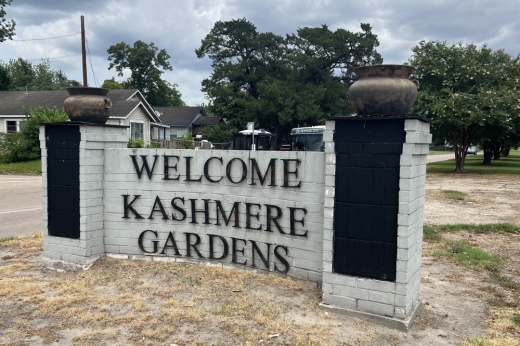What happened
The $2 million is being allocated to the Houston Land Bank, which will help residents voluntarily move from areas that are contaminated by creosote from the Union Pacific yard located in Fifth Ward.
Mayor John Whitmire, who was sworn into office Jan. 2, paused funding for 30 days on Jan. 10 while the new City Council members became adjusted to their roles and became familiar with the project.
“The day before the first council meeting, I was briefed by [Assistant Chief Policy Officer] Gloria Mareno and [Chief Recovery Officer] Steve Castello, who had been assigned this project, and they were describing the challenges that I had observed from a distance,” Whitmire said. “Certainly as a state senator, it’s gotten a lot of discussion in the press, but [I] was not familiar with the action of the city.”
According to the council agenda, the approved $2 million is a part of the $5 million Fifth Ward Voluntary Relocation Fund that former Mayor Sylvester Turner designated in September to assist with the relocation of certain residents who voluntarily seek to relocate away from the cancer plume.
How we got here
In 2022, the Houston Health Department found dioxin in a surface soil sample. According to the U.S. Environmental Protection Agency, dioxins are highly toxic and can cause cancer, reproductive and developmental problems.
In 2023, city of Houston officials threatened to sue Union Pacific over the contaminated site, and the council began to help Fifth Ward residents living in the area.
- In July, Turner announced a voluntary buyout/buy-in program to help residents relocate from the area.
- In August, Union Pacific published findings from the Texas Department of State Health Services that claimed there were "no cancer concerns" in 47 contaminated soil samples they tested. However, state officials said there were limitations on the assessment, and city of Houston officials said the tests were was too small and generic, and that it was irresponsible to suggest the results meant the soil was safe. Shortly after, Union Pacific began seeking property owner permission at more than 300 Fifth Ward residences to sample soil in their yards for further testing.
- In January 2024, Whitmire paused funding for relocation efforts.
- On Feb. 6, Houston City Council approved $2 million for relocation efforts.
As of July, 10 families had agreed to voluntarily relocate.
- Residents that are renting their own home are eligible to receive $10,000 to relocate.
- With the assistance of the Houston Land Bank, residents can receive up to $250,000 to purchase a new home.
“I could see where they would draw that conclusion,” Whitmire said. “New homes and condos in an area that the city was emphasizing a relocation.”
The state's General Land Office has already built three homes in the cancer cluster with 18 more permitted.
Whitmire said the city reached out to the GLO to pause any further permits from being issued. The last city permit was in January.
What they are saying
Huey German-Wilson—president of Super Neighborhood 48, which covers the area—said she and Whitmire visited residents in the Fifth Ward to receive feedback on relocation and redevelopment.
“People were confused about the message that was being given,” she said. “They felt that, yes, there is something wrong, but the city is building new homes right next door to someone who may have passed away. So there is a lot of confusion and a lack of trust.”
Whitmire said half a dozen residents they encountered believed that they are being taken advantage of with developers wanting to purchase the land and redevelop it.
“They really believe they are being taken advantage of,” he said.
Stay tuned
Whitmire said the city will continue to help residents who want to relocate while also cleaning up the area and will look to halt development.
Pending Environmental Protection Agency findings, Union Pacific may be required to help fund and assist in cleanup efforts.





